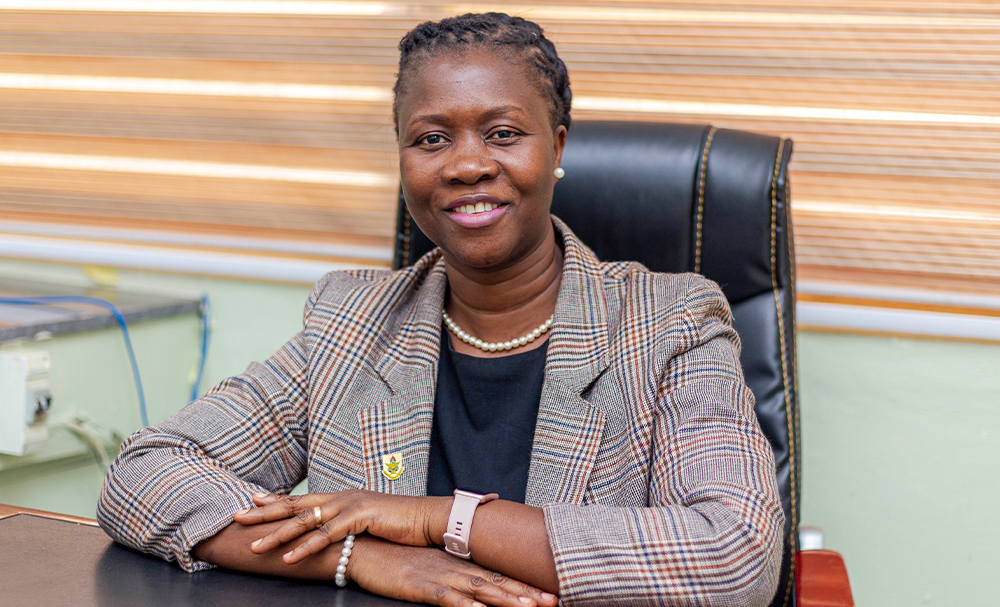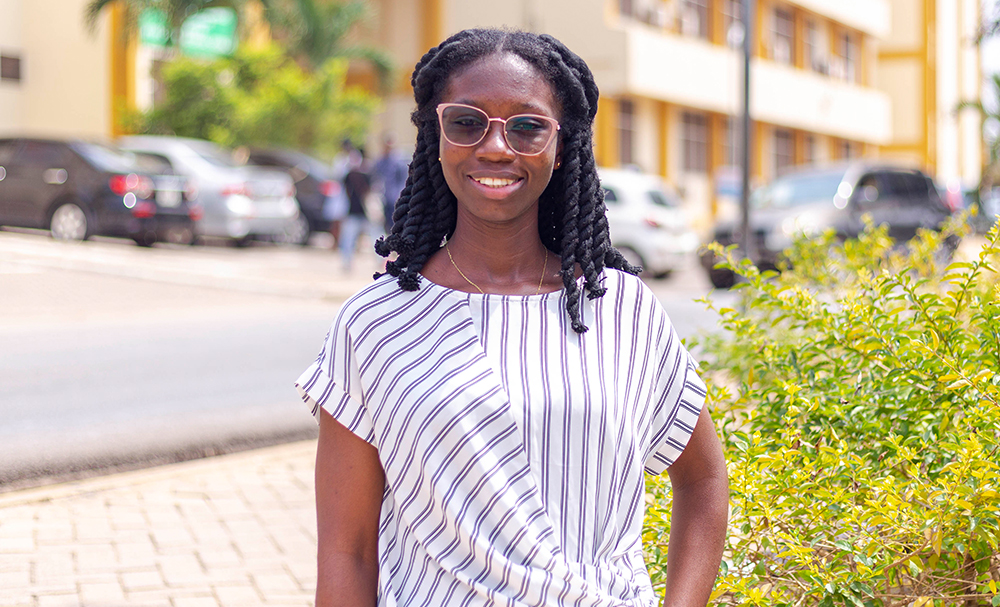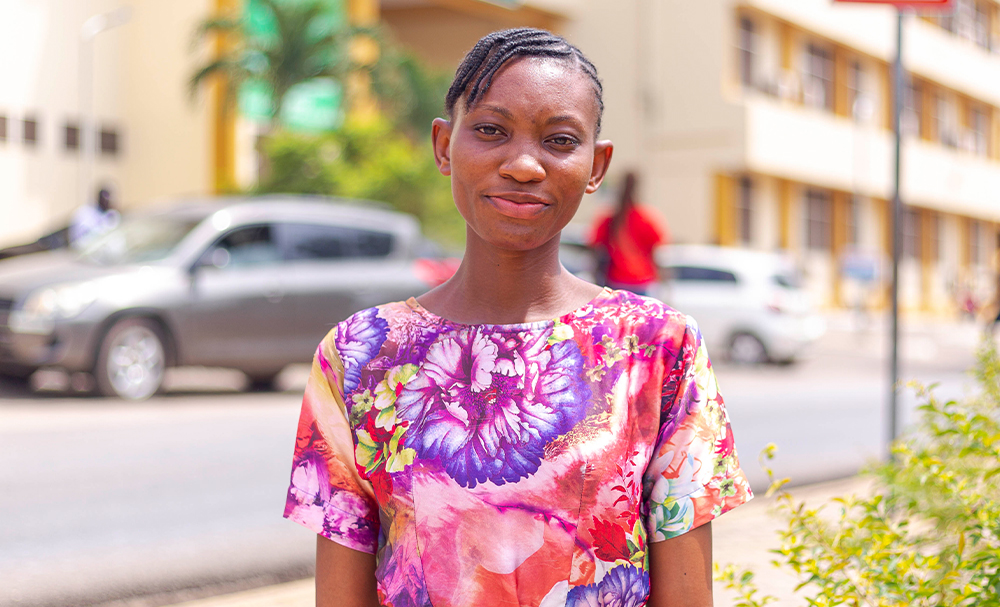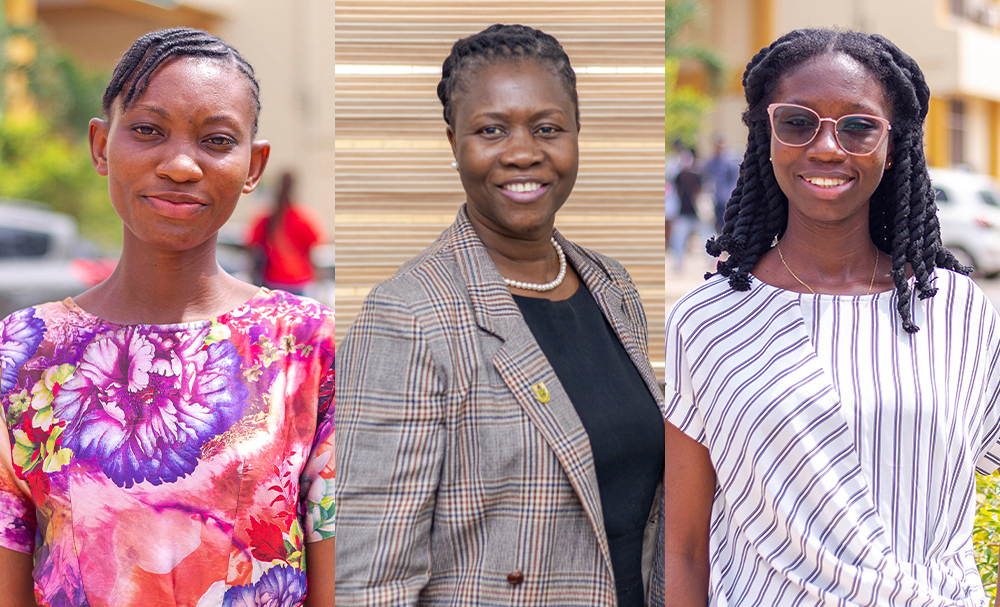In celebration of the International Day of Women and Girls in Science on February 11, The Kwame Nkrumah University of Science and Technology (KNUST) shines a spotlight on the remarkable journey and impact of the Women in Science, Technology, Engineering, and Mathematics Ghana (WiSTEM GH) Girls' Camp.

The story of WiSTEM GH began during the tenure of former Vice-Chancellor Professor Obiri-Danso, who sought to increase female enrollment at KNUST, Ghana’s leading institution for STEM education.
“We knew KNUST was the hub for STEM in Ghana, but we needed more women to take part,” explained Professor Mrs. Mercy Badu, Associate Professor in the Department of Chemistry and General Secretary of WiSTEM GH KNUST.
What started as an initiative to boost female enrollment soon expanded beyond the university. Recognizing the need to inspire young girls early, WiSTEM GH launched the Girls' Camp in 2018.
The first camp welcomed 80 girls from Senior High Schools (SHS) around KNUST. By 2024, the camp had grown to accommodate 300 girls and their tutors, with over 1,000 girls mentored to date.
“The camp isn’t just about numbers,” Professor Badu emphasized. “It’s about transforming mindsets and building confidence.”

For Sylivia, a Teaching Assistant in the Physics Department and an alumna of the first camp, the experience was life-changing.
“Before the camp, I thought boys were naturally better at STEM. But hearing from role models like Patricia Obo-Nai, then CEO of Vodafone, made me realize I could excel too,” she shared. Olivia’s journey from camp participant to Deputy Women’s Commissioner in her department is a testament to the camp’s lasting impact.

Grace, now pursuing a BSc in Agricultural Biotechnology, echoed Sylivia’s sentiments. “The camp taught me to be bold. I used to shy away from asking questions, but now I’m proactive in my learning. It showed me that if others can succeed, so can I.”
Mentorship lies at the heart of WiSTEM GH’s success. Through initiatives like ‘WiSTEM Junior,’ a network of undergraduates from KNUST, Legon, UCC, and other institutions, the organization ensures continuous support for its participants. Partnerships with the Millennium Development Authority and the MasterCard Scholarship Programme further bolster these efforts.
The backing of KNUST’s management has also been crucial. “The Vice-Chancellor’s Office has been instrumental in lending credibility to our fundraising efforts,” Professor Badu noted. “This institutional support has been key to our growth and sustainability.”
As the world celebrates the International Day of Women and Girls in Science, WiSTEM GH stands as a beacon of hope and progress. “Gender bias is systemic, and overcoming it takes consistent effort,” Professor Badu remarked. “But with persistence, we will achieve the change we seek.” For young girls considering STEM careers, Sylivia and Grace offer words of encouragement. “Don’t limit yourself,” Sylivia urged. “If others have done it, you can too.” Grace added, “There will be challenges, but with determination and a clear vision, you can overcome them.”
| Story by Eunice Odumaa Asare (URO) | Photos by Isaac Kwaku Duah |

